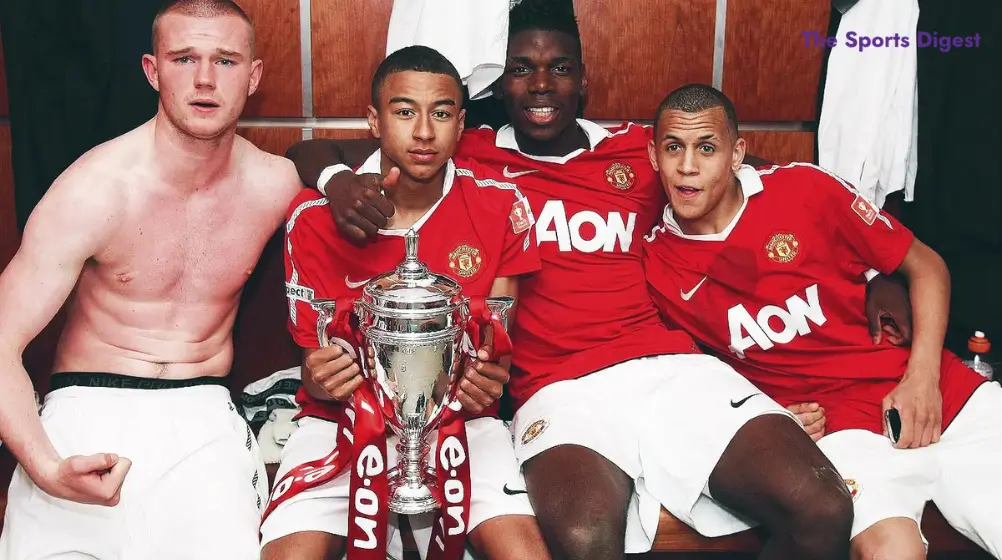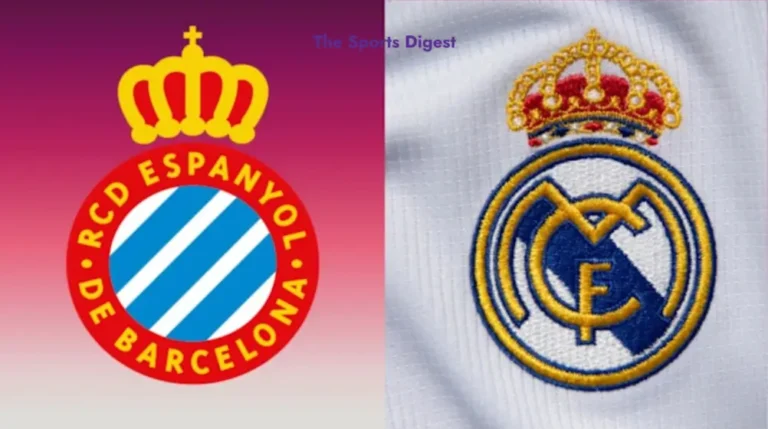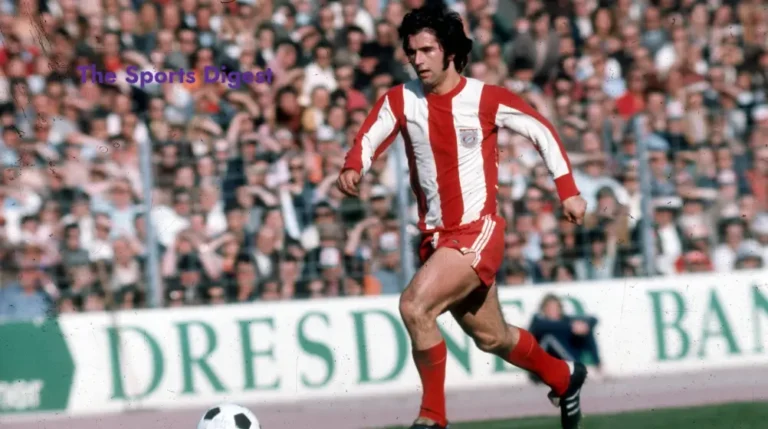Paul Pogba & Ravel Morrison: Different Paths
“The best kid he’d ever seen.” These were the words of Sir Alex Ferguson about a young Ravel Morrison, as recalled by Rio Ferdinand. Coming from one of football’s greatest ever managers, such praise carried immense weight.
In 2009, Manchester United’s famed youth academy harbored two particularly special midfielders: Paul Pogba and Ravel Morrison. Both featured prominently in the FA Youth Cup-winning side of 2011, showcasing talents that promised illustrious careers at the highest level. Yet despite their initial similarities and equal promise, their professional journeys would follow alarmingly dissimilar trajectories after leaving Carrington.
Table of Contents
Early Days and Contrasting Paths in Manchester: Paul Pogba and Ravel Morrison
Paul Pogba‘s footballing journey began in France, starting with US Roissy at age six before progressing to US Torcy where he served as captain. His talent soon earned him a place at Le Havre’s renowned youth academy, where he captained the under-16s to a runners-up finish. His leadership qualities were evident early, attracting interest from France’s international youth teams where he captained the under-16 side. Despite initially planning to remain at Le Havre, Paul Pogba made the pivotal decision to join Manchester United in October 2009.
Ravel Morrison’s connection with United began much earlier. Scouted while playing for Fletcher Moss Rangers, he joined the club at just eight years old. He signed as a first-year scholar in 2009 and his first professional contract on his 17th birthday in 2010. However, the same week he turned professional, Morrison’s off-field troubles began to surface. He was arrested and later convicted of intimidating a witness in a knifepoint robbery case. Though he avoided jail, Morrison received a 12-month referral order and was required to pay compensation.
Only a few months later, Morrison found himself in court again for criminal damage following a domestic argument, resulting in further referral to a youth offending team and a fine. These early legal troubles foreshadowed the disciplinary issues that would plague his career.
Despite these off-field problems, Morrison’s talent on the pitch was undeniable. He excelled for England’s youth teams and in the FA Youth Cup, with performances that drew comparisons to Paul Scholes. Yet concerns grew within the club that his indiscipline would ultimately hinder his development as a professional.
Manchester United’s under-18s coach, Paul McGuinness, understood the historical significance of youth success at the club, often referencing the legacy of the Busby Babes and the Class of ’92. The 2011 FA Youth Cup victory, in which both Paul Pogba and Morrison played crucial roles—scoring in key matches against Chelsea and Sheffield United—was viewed as a traditional stepping stone to senior team success.
Senior Football and Diverging Departures
Morrison had already made his first-team debut in the League Cup in October 2010, seemingly a step ahead of Paul Pogba in his development. However, both players found first-team opportunities limited during the 2011/12 season. Pogba made seven substitute appearances across the League Cup, Premier League, and Europa League, while Morrison featured only in three League Cup matches.
Their reactions to this limited playing time proved telling. Morrison, appearing more impatient for senior football, moved to West Ham in January 2012. Manchester United’s decision to let him go spoke volumes—despite his exceptional talent, the club had become frustrated with his off-field problems and lack of improvement in attitude. Sir Alex Ferguson would later describe Morrison as potentially the “saddest case” he encountered, a player who possessed immense natural talent but lacked the emotional and mental strength to overcome his personal challenges.
Pogba’s departure came months later, in July 2012, after he rejected a contract extension. His motivation was similar—seeking more first-team action—but the circumstances were markedly different. Ferguson was reportedly “livid” at losing a player he viewed as a future star. Pogba’s move to Juventus would quickly be vindicated as he became a vital player for the Italian giants, playing a key role in their Serie A title win in his very first season.
Morrison’s Troubled Journey
Morrison’s fresh start at West Ham was compromised before it truly began, with social media controversies marring his arrival before he’d even made his debut. Seeking to provide him with regular football and to improve his professionalism, West Ham loaned Morrison to Birmingham City in August 2012.
His time at Birmingham initially featured the familiar attitude issues, but eventually, Morrison showed promise under manager Lee Clark. This brief period of stability gave rise to hopes that another loan spell might further his development, but instead, Morrison returned to West Ham where he did show tantalizing glimpses of his talent—enough to generate speculation about a potential England call-up.
Yet once again, off-field issues intervened. An altercation with a teammate during England under-21 duty overshadowed his encouraging performances. Further loan spells at Queens Park Rangers followed, and while Morrison made a sufficient impact in terms of goals and assists, his progress was again derailed when he was arrested and charged with assault, although he was later found not guilty.
West Ham offered Morrison one final chance with a loan to Cardiff City, explicitly emphasizing the need for improved discipline. The opportunity went unfulfilled. Morrison subsequently signed a pre-contract agreement with Lazio in Italy, prompting West Ham to terminate his contract early—a clear indication they had exhausted their patience.
Paul Pogba’s Continued Ascent vs. Morrison’s Decline
While Morrison struggled for stability, Pogba’s career soared. He became a mainstay at Juventus, developing into one of Europe’s most complete midfielders. His technical ability, physical presence, and tactical intelligence made him a cornerstone of Juventus’ success.
In stark contrast, Morrison’s time at Lazio proved largely disappointing. He expressed impatience to leave early in his tenure, and his manager publicly cited poor training, unprofessionalism, and a lack of Italian language skills as reasons for his limited appearances. Despite brief signs of improved commitment, Morrison never established himself at the club.
Further loan moves to QPR and Atlas in Mexico followed, but each time Morrison returned to Lazio without having secured a stable future elsewhere. Meanwhile, Pogba’s stock had risen so dramatically that he made a high-profile return to Manchester United for what was then a world-record transfer fee—a remarkable validation of his development since leaving Old Trafford.
Conclusion: Diverging Fates
The careers of Paul Pogba and Ravel Morrison, once parallel in promise, had drastically diverged. Pogba reached the pinnacle of the game, commanding record transfer fees and becoming a World Cup winner with France. Morrison, by contrast, continued to struggle for stability, bouncing between clubs without ever fulfilling his immense potential.
While Pogba’s “vice” might be characterized as a love of the limelight—a trait that could actually fuel his success on the world stage—Morrison continued to be plagued by the immaturity and ill-discipline that had characterized his early career. Sir Alex Ferguson’s view was prescient: “Talent alone is not enough.”
As Paul Pogba embarked on a triumphant journey home to Manchester United as a global superstar, Morrison seemed to have “gotten lost on his way”—a poignant metaphor for a career that promised so much but delivered so little. Their story stands as a powerful reminder that in professional sports, as in life, natural ability must be matched with character, discipline, and mental resilience if it is to translate into lasting success.
Have you ever read an article like this?
There are no reviews yet. Be the first one to write one.






